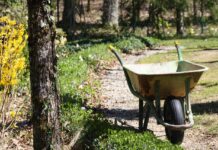Editor:
For many months, a few good, caring people have been trying to get the public to realize the consequences of fracking. They gather in Youngstown, North Lima, Coitsville, Poland, Butler and New Wilmington. There are probably other groups gathering in other towns as well.
If you would attend one of these gatherings, you would feel the warmth of the atmosphere that is created any time caring people are in one place. We are very concerned about the future of the people who live here after we are gone.
Some people say fracking is safe. I don’t believe them. They justify their claims by spouting a lot of biased, deceptive statistics and findings from a few questionable studies done by a few questionable organizations..
We all know how big money and power can influence the outcomes of research done by so-called “experts.” Large industry and government have a great deal of money and power and fund many of these studies. I believe only the conclusions made by intelligent, independent researchers who have nothing to gain from their findings.
Some of us are frustrated by the apathy of the general public. They sit in their houses watching TV and thinking everything will be O.K. I am not comforted by words like “strict regulations,” “monitoring,” “safety checks” and “accountability,” or by the suggestion that water testing is a valid way of dealing with ruined water wells. These words and this suggestion, courtesy of the public relations departments of the industry, are merely providing us with a false sense of security.
Those of us who are concerned and caring are unhappy with how some people portray us. They point their fingers at us and say we are misinformed, biased and gullible. They call us extremists, radicals, deluded liars and troublemakers.
These accusations hurt our feelings because we are sensitive. Sensitivity, however, should not imply weakness. Some of us are weary and have reached a state of despair, but we emotionally support one another and are not willing to give up.
We will continue to inform the public by having events, holding debates, writing letters and demonstrating at protests and rallies or whatever peaceful means necessary to encourage people to be more concerned about what impact fracking will have on this area. It won’t be pretty — literally.
If we are unsuccessful, we will probably buy a lot of thick white paint and cover up the slogans on our protest signs. Then, we will have one last march. We will walk through this noisy, ugly, unhealthy, unsafe place and hold up our signs one last time. They will all carry the same message: WHY DID YOU LET THIS HAPPEN?
After this last event, I will gather up the signs and store them in my attic so your sons and daughters will be able to carry them some day. Corrosion, deterioration and seepage are slow processes.
Steven Beck
West Middlesex, Pa.













Thanks for summing up the commitment and dedication that we have to raising public awareness of the dangers of fracking. Like you, many of us in the Mahoning Valley, Ohio are frustrated as we work to provide an educational resource for local communities and overcome public apathy. Meanwhile, private citizens who are signing huge leases with oil&gas concerns are being lauded in the local newspapers as heros. Like you, we are dedicated to continuing to collect and make available to the public information regarding the applicable science including public health, limnology and geology. Similarly, we will continue to write letters, meet with our neighbors and government officials, rally and try to raise awareness about the dangers of fracking. Preserving our water and our eco-system are our top priority. We stand with you, Steve.